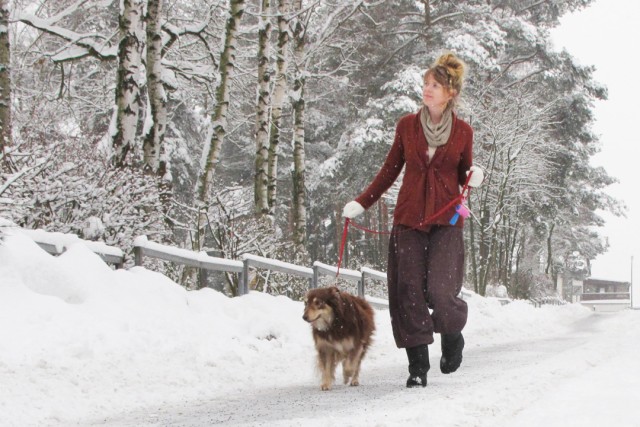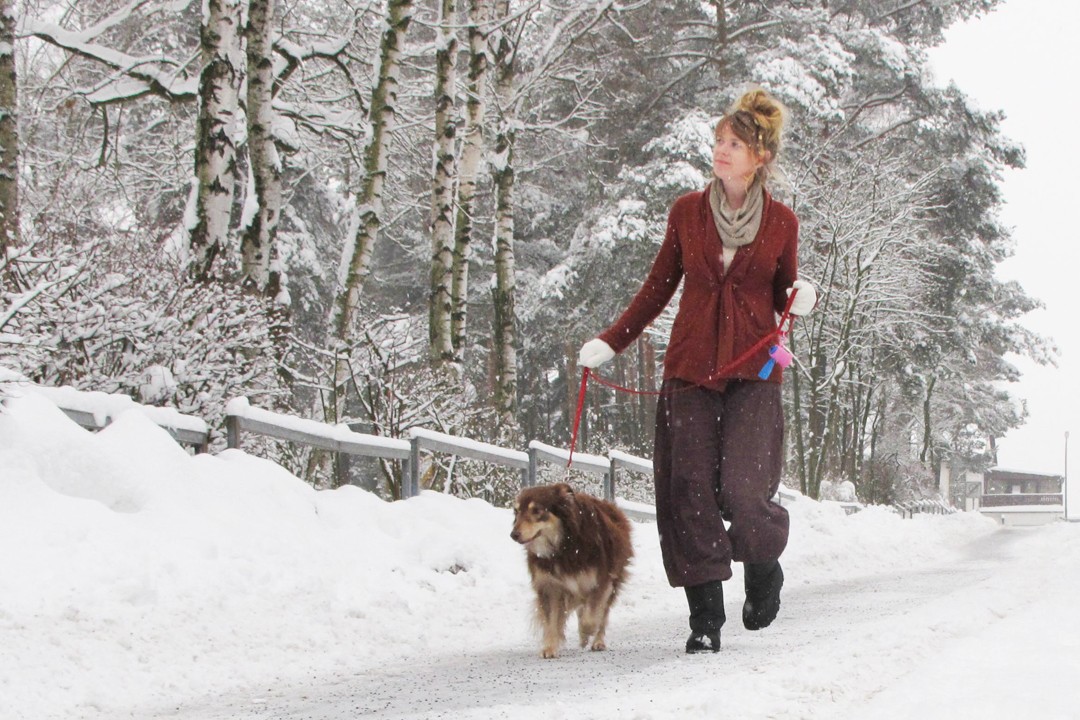GRAFENWOEHR, Germany Aca,!aEURc After several months of collaboration with a community working group, the garrison is set to release a new pet policy in the coming weeks for residents with pets in government housing.
The new five-page document will combine local Bavarian government regulations, the Joint Multinational Training Command's dangerous dog policy and veterinary treatment facilities' policies, and clarifies pet ownership responsibilities.
"The biggest problem we have regarding pet ownership in the Grafenwoehr footprint is education, awareness and basic pet responsible owner issues," said Col. Vann Smiley, U.S. Army Garrison Grafenwoehr commander, who owns a 5-year-old black Labrador retriever and a 2-year-old Bijon Frise.
Included in the policy are: the number of pets allowed per household (two, such as a cat and a dog, and a "reasonable" number of other small contained pets like hamsters and fish); prohibited dogs in accordance with host nation laws, ownership responsibilities and the consequences for violations.
In addition, residents are required to register their pets at the on-post veterinary treatment facility within two weeks of arrival. For many, however, this requirement seems to have gotten lost in the PCS shuffle.
"I'd guess probably 40 percent of the pets on post aren't registered," said Tony Frazier, garrison business manager, who is a member of the pet policy working group.
Frazier said registering allows the garrison to ensure owners are accountable for their pets. The garrison is currently offering a 45-day grace period for those who missed the initial two-week window.
Room to roam
In addition to the revamped pet policy, the garrison and pet working group also have established two dog parks at Grafenwoehr and Rose Barracks.
Though the dog parks are Spartan compared their counterparts in the States, amounting to a fenced-in field where dogs can run or lounge leashless, Frazier said if additional funding is secured, the parks could receive upgrades including benches with overhead cover and running water for pets.
Grafenwoehr's park, near Building 244, and the one at Rose Barracks, across from Little Mike Lake, are scheduled to open soon. According to Smiley, the garrison is waiting on the signs that stipulate the rules and also bag holders and trash receptacles.
Grassroots campaign
Although the pet policy and dog parks are new, the push for responsible pet ownership is not.
Laura Vaughn, president of the Vilseck Community and Spouses Club, and several concerned residents launched the Vilseck Pet Ownership Campaign in March to address pet issues in the community and promote awareness of resources.
One of its most pressing issues was the number of pets abandoned by members of the military community. When Americans leave pets behind, the local community in Amberg has to foot the bill.
According to Theo Schmausser, president of the Amberg Tierheim, about 66 percent of the dogs (and five percent of the cats) at the Amberg Tierheim are from American families. For the past 17 years Amberg residents have given 25 euro cents in the form of taxes to support the tierheim, but this amount will double to 50 euro cents next year. Schmausser said most of the money pays for immunizations and food for the animals.
In addition to the financial burden, the preponderance of animals left by Americans, can make local tierheims reluctant to let Americans adopt animals, Vaughn said.
However, through donations of dog food, money and time, Vaughn and other community members are offering an "olive branch" in hopes it will change the way the tierheims view Americans and how they treat their animals.
Its first donation to the Amberg Tierheim this spring was for 500 euros and 200 pounds of dog food. The group continues collect pet bedding, food, leashes and members travel to the tierheim at least once a month to brush, walk and bathe dogs at the shelter.
"Human contact is important," said Vaughn, who owns a 1-year-old deer Chihuahua "Gunner." "It lets them know they're not going to live in this cage forever."
Soldiers from the garrison are getting into the act, as well. Next week, Soldiers from the garrison's Headquarters and Headquarters Company and Warrior Transition Unit will volunteer by cleaning up the outside areas and walking dogs and at the Amberg and Weiden tierheims, Dec. 13.
"Our message is to show that we care and that the vast majority of pet owners are responsible," Smiley said.
Pet SOS
In addition to working with local tierheims, the group also works to find homes for abandoned pets before they get to the tierheim.
During Thanksgiving week, when the club found a rabbit and kitten that were abandoned or had gotten loose, it put out an animal all-points bulletin through its website and email distribution list. Within a day, the animals had a new home and another person even donated a rabbit hutch to the new owner.
Since March, they've place 20 pets that we either abandoned or whose owners could no longer keep them. But they can always use more help.
Copies of the new pet policy will be available at the housing office and veterinary treatment facilities. For more information on pets that need a home, visit www.vcsconline.com and click on the "VPOC" tab.


Social Sharing